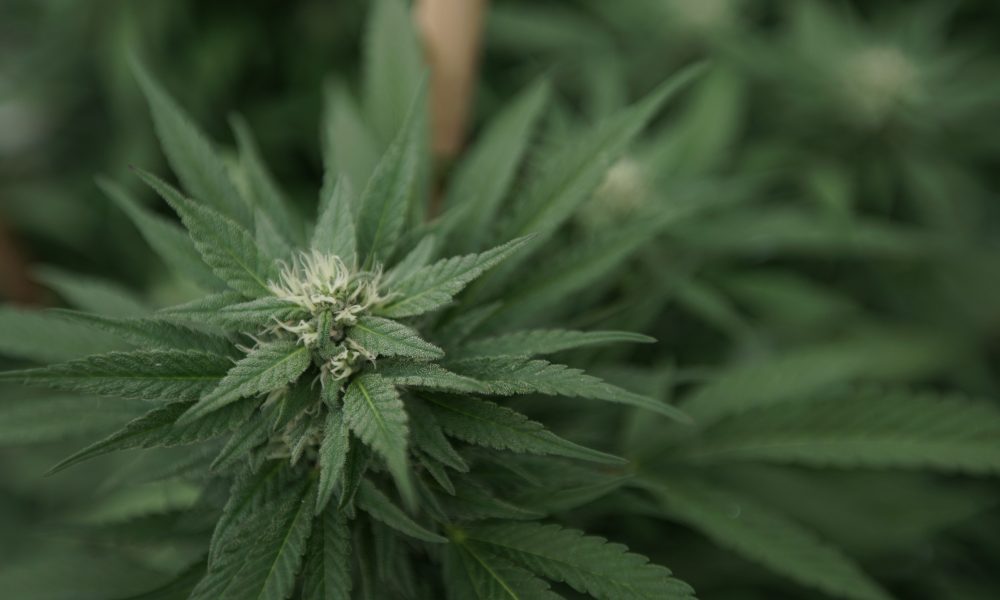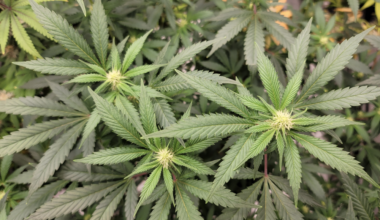The U.S. House of Representatives on Friday voted in favor of a bill to federally legalize marijuana. And while the vote largely fell along partisan lines, there was at least one notable “no” on the Republican side: Rep. Dave Joyce (R-OH), who supports ending prohibition and serves as a co-chair of the Congressional Cannabis Caucus.
But shortly after the vote, the Democratic co-chairs of the panel told Marijuana Moment that there’s no reason for alarm, and the caucus remains committed to finding bipartisan ground on which to advance comprehensive reform.
To be sure, Joyce’s vote didn’t come as a surprise. Not only did his office circulate a letter to other GOP offices ahead of a House Rules Committee hearing on the Marijuana Opportunity, Reinvestment and Expungement (MORE) Act, outlining the reasons for his opposition after attempting to work with the sponsor on revisions, but he also penned an op-ed for Marijuana Moment going into further detail about his stance on the bill ahead of the floor vote. And, Joyce had voted against an earlier version of the legislation the first time it came to the floor in 2020.
Even so, the “no” vote from a leader of Cannabis Caucus raised some questions about the utility of the bipartisan group whose aim is to see past disagreements on other issues while uniting on cannabis reform. Reps. Barbara Lee (D-CA) and Earl Blumenauer (D-OR) addressed Joyce’s opposition to the MORE Act during a virtual press briefing following the vote.
“First of all, a lot of caucuses have disagreements,” Lee told Marijuana Moment, adding that she co-chairs another caucus where members “disagree” and “try to work through the issues.”
“But we sometimes have to agree to disagree—and, unfortunately, that happened this time,” the congresswoman said. She also said that she spoke with Joyce before the vote and wanted to clarify that there’s no “problem” with the Cannabis Caucus despite one of its co-chairs going against the grain and opposing the only marijuana legalization bill that’s advancing in Congress.
“I understand where David was coming from, but in no way are there any indications from anyone that the Cannabis Caucus, because of this, would be in any jeopardy,” Lee said.
“Hopefully, the public will weigh in,” she said. “And I’m glad the press doing this [to inform the public] so that we can continue to move forward. I don’t think it impairs our work together. It just makes our work a little more difficult because we’ve got to do more educating of our co-chairs of the Cannabis Caucus.”
Blumenauer, for his part, said that there’s a “broad array of proposals dealing with cannabis” and he has “profound respect for David Joyce.”
“He was formerly a prosecutor, and the work that he’s done with us to this point represents, I think, a real awareness and growth with this issue,” the congressman said. “I have no doubt that, as we work forward, people will understand the approach that’s been taken to be able to provide a legal framework to deal with restorative justice—which is such an important issue in cities and states across the country. We’re going to get there.”
“But there’s a broad array of things that we need to work on: medical cannabis research, some economic and tax reforms—there’s no end to the areas that we can work together,” Blumenauer said. “And I appreciate David Joyce’s leadership and the fact that he’s evolved on this issue, and I’d like to continue working with him to evolve a little further.”
Joyce, for his part, said in a statement following the vote that the “political reality” is that the MORE Act will not be enacted as passed in the House.
“With a president who has made clear his unwillingness to fully desechedule cannabis and a Senate majority leader set to roll out his own comprehensive package, no serious legislator, cannabis advocate or industry stakeholder believes the MORE Act has any prospect of becoming law this Congress,” he said.
To that point, White House Press Secretary Jen Psaki said hours after the House vote in favor of the MORE Act that the president agrees that “our current marijuana laws are not working,” but she declined to say whether he supports the specific legislation.
The Democratic Cannabis Caucus co-chairs, for their part, expressed optimism that the momentum coming out of Friday’s vote will soon lead to comprehensive marijuana reform at the federal level. But they also appeared cognizant of the complex political dynamics at play.
The caucus also lost its other GOP co-chair, Rep. Don Young (R-AK), this month. Several members honored the congressman—who also fought against cannabis criminalization and died at the age of 88 two weeks ago—during Friday’s floor proceedings.
Lawmakers And Organizations React To Federal Marijuana Legalization Bill’s House Passage
Photo courtesy of Chris Wallis // Side Pocket Images.
Medical Disclaimer:
The information provided in these blog posts is intended for general informational and educational purposes only. It is not a substitute for professional medical advice, diagnosis, or treatment. Always seek the advice of your physician or other qualified healthcare provider with any questions you may have regarding a medical condition. The use of any information provided in these blog posts is solely at your own risk. The authors and the website do not recommend or endorse any specific products, treatments, or procedures mentioned. Reliance on any information in these blog posts is solely at your own discretion.






